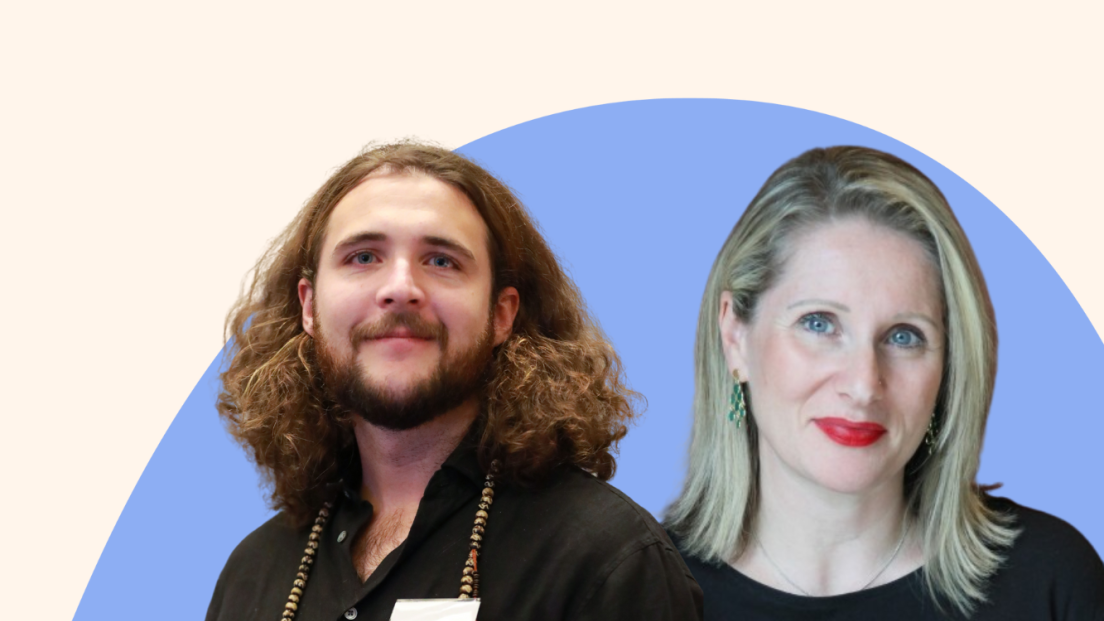Accessing cultural and sporting organisations (e.g. museums, art galleries, zoos and playing and watching sport) allows people to pursue their interests, develop skills, learn about the world around them and connect with like-minded people. However, when you have a hidden disability (e.g. Autism, Dementia, Sensory Processing, PTSD) accessing public spaces comes with a lot of barriers. This can include busy, loud, crowded environments, confusing and unexplained rules, and judgement from other people.
To improve accessibility and inclusion of people with hidden disabilities, Australian Museum partnered with the Aspect Autism Friendly team to:
- Assess and adapt the environment
- Develop helpful preparation resources like a Visual Story and Sensory Map
- Provide training to staff on how to support people with a hidden disability
- Develop special events, where certain features of the environment can be more carefully adapted
One of these events is ‘Early Birds’, which involves having a reduced-sensory, relaxed and supportive environment for people of all ages. Events like Early Birds provide a ‘gateway to access’, where people can feel safe to attend the museum when they otherwise might not be able to, or can develop the skills and confidence to attend in general access times. You can read more about the role that special-access events play here: https://www.linkedin.com/pulse/tokenism-role-special-events-inclusion-aspect-autism-friendly/?trackingId=zweJ4j3geUGme4soarcqpw%3D%3D
Early Birds events provide visitors with:
- Reduced numbers/crowding
- Reduced sensory elements
- Interactive/tactile opportunities
- Recognition of the Hidden Disability Sunflower Lanyard
- Autistic representation
- Unique hands-on exhibitions and workshops for interested visitors
We asked for feedback from visitors and volunteers, about what they thought of their experience at Early Birds. You can read below about why some of the adaptations were made, and how they benefitted visitors.
Providing a supportive environment helps develop confidence
Visiting the museum takes a lot of planning, and new experiences can create a lot of stress and anxiety. By providing helpful pre-visit resources like a Visual Story, and a welcoming, supportive environment, visitors can develop the skills and confidence to try new things. Explaining what to expect, and the expected behaviour in a positive way helps people to learn new skills successfully too.
“I met a support worker, who was supporting autistic adults that lived in a group home. They had printed out the Visual Story and read through it together every day for a week before visiting. When one of the autistic adults was getting stressed about finding the entrance to the museum, they referred back to the picture in the Visual Story, so they knew what they were looking for. This helped the person to feel calm, and be more independent in finding their way around. They’ve now been to every Early Birds event since.”
“Some of the kids were naturally a bit hesitant to hold the stick insects but after watching me for a few minutes would ask if they could have a turn. I took the time to explain that they were a bit prickly, to use gentle hands and to clarify they were friendly and didn’t bite. I also made sure to be very close by to take the insect off when they had enough.”
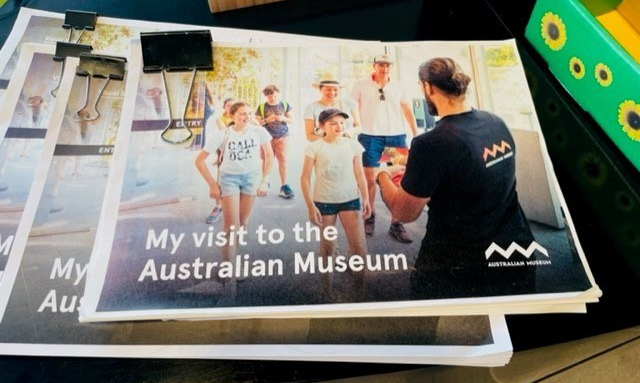
Making sensory adaptations helps to reduce overwhelm
During the Early Bird events, the Australian Museum reduces lighting and turns off (or down) some of the unexpected or loud sounds, like the dinosaur roars. There are also reduced numbers of people, so there is less crowding and noise, because the museum often gets very busy. When sensory experiences are predictable and well-managed, it helps people to engage more easily, without feeling overwhelmed or having to use their own strategies to cope (like wearing sunglasses or noise-cancelling headphones).
“One mum pointed at the ceiling and told me she was really happy that the lights on the whale bones had been turned down because it meant her son could look up and enjoy it, where he would usually become overwhelmed.”
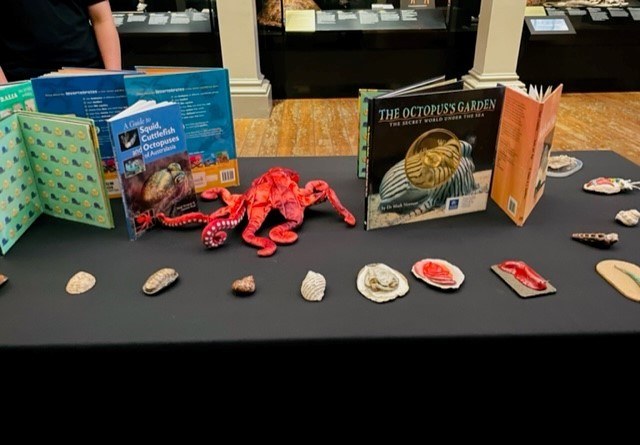
Having Autistic representation, and passionate matter experts helps to explore interests
Having diverse staff, including autistic adults volunteering, provides great representation to young autistic people and their families. Having experts who are just as passionate about their interests also encourages people that when they or their kids grow up they can follow their passions too.
“It was a good opportunity to talk about science, as one of the staff was studying bugs and had a lot of detailed knowledge for anyone who wanted to know more.”
“One 10-year-old boy noticed my Aspect shirt and introduced himself to tell me he was part of Aspect School Online. He was really curious about why I was there and I explained to him about the Autism Friendly team and what we do, like conducting environmental assessments to make places like the museum more autism friendly. I also told him how some staff working today where on the Autism Spectrum and he really lit up, gave me a big grin and thanked me for taking the time to explain it to him.”
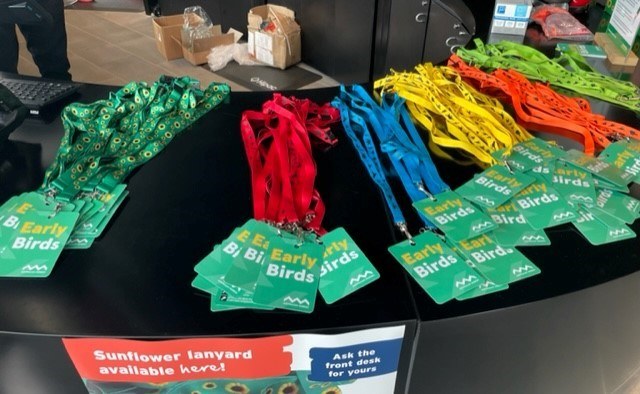
Ability to spend time as a family
When visiting busy places like the museum, activities are often not designed with the whole family in mind, or families will have to leave early due to overwhelm, meaning parents and siblings miss out on having fun experiences together. The Australian Museum does a great job at developing an environment, and interactive opportunities, that allow parents, friends and siblings to all participate together.
“Parents were really appreciative of the opportunity to hold the stick insects or have their kids hold them. Lots of taking photos with the insects and laughter.”
Flexibility and extra/1:1 support helps provide a welcoming, non-judgemental experience
One of the biggest barriers to accessing public places is judgement and lack of understanding from other people. Australian Museum staff were trained in understanding and supporting how autistic people work best. Having staff who are passionate about making people feel welcome and included, and willing to be flexible, often makes the difference for a successful, enjoyable visit.
“I especially loved the lady who welcomed people into a circle to do string activities which could be adapted for various needs and skill levels. For those not great at string games (such as myself) there where feathers and sound makers to play with. She was funny, very charismatic and told everyone the story of how emu eggs are hunted for breakfast. One of the other women at this site helped guide my hands until I finally got the string game right and I felt very included.”
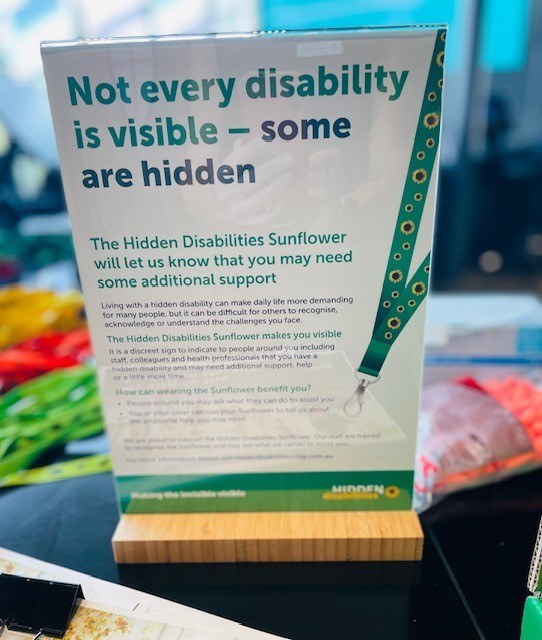
Aspect's autism friendly consultancies
The Aspect Autism Friendly team are currently partnering with a number of cultural and sporting organisations to develop similar resources and initiatives, as part of our Sunflowers in Sydney program.
Some of these organisations include:
- Art Gallery of NSW
- Australian National Maritime Museum
- Eid Festival
- Gracie Jiu Jitsu Parramatta
- Madame Tussaud’s Darling Harbour
- Mardi Gras
- Museum of Applied Arts and Sciences / Powerhouse Museum
- Museum of Contemporary Art
- National Centre of Indigenous Excellence
- Royal Easter Show
- Sealife Darling Harbour
- Taronga Zoo
- Wests Tigers
- Wildlife Darling Harbour


